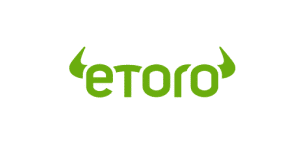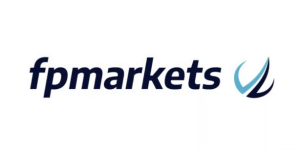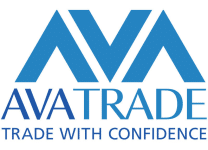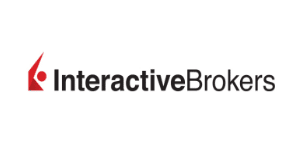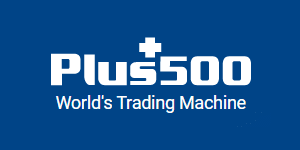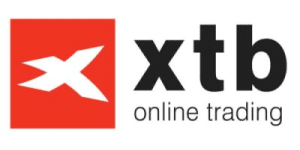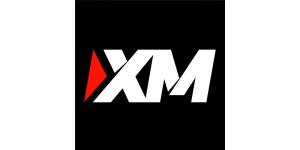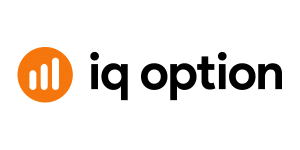In this guide, we go over the best CFD trading platforms based on various factors. We looked at some of the top CFD brokers available to make this list. When comparing CFD brokers, we examine the fees and commissions on trades, customer service, ease of use, and other essential factors.
List of The Best CFD Brokers 2023
Below we ranked the best brokers for CFDs. We base our analysis on various factors such as fees, security, regulation, trading software, mobile apps, tradeable assets, customer support, and more. This is our selection of the best CFD platforms.
- eToro – Best CFD Broker Overall
- Pepperstone – Best CFD Trading Platform for Low Spreads
- FP Markets – Best CFD Trading Platform For Forex Execution
- AvaTrade – Best CFD Broker for Forex
- Interactive Brokers – Best CFD Trading Platform for Market Access
- Plus500 – Great CFD Trading Platform
- XTB – Good CFD Trading Platform
- XM – Best CFD Broker for Education
- IQ Option – Best CFD Trading Platform for Digital Options
- Markets.com
- IG – Well Established CFD Broker
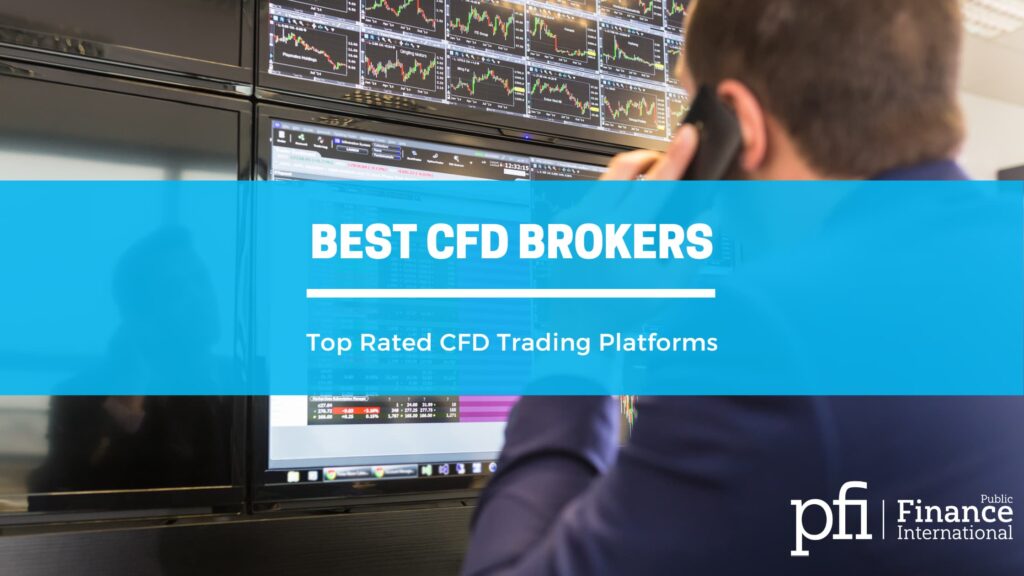
1. eToro – Best CFD Trading Platform Overall
eToro was founded in 2007 and is one of the most popular retail CFD trading platforms. They provide brokerage to millions of users and facilitate thousands of transactions every hour. They are the best social and copy trading platforms for beginner CFD traders.
Top-tier regulators like the FCA, CySEC, ASIC, and FSAS regulate eToro. eToro is a reliable CFD broker.
77% of retail investor accounts lose money when trading CFDs with this provider.
They offer CFDs on Stocks, ETFs, Forex, Crypto, Indices, and Commodities. eToro uses advanced risk management features like customizable stop losses and real-time alerts. It is a great CFD stock trading platform that offers zero-commission stock trading on selected stocks.
Key facts:
- eToro offers the most CFD cryptocurrency pairs (46+). Compared to Plus500, eToro offers 206.7% more cryptocurrency pairs and 283.3% more than Pepperstone.
- Regarding CFD currency pairs offered, eToro has 30.99% less than Plus500 and 21% less than Pepperstone.
- eToro has 566.7% more Share CFDs than Pepperstone and 110.4% compared to Plus500.
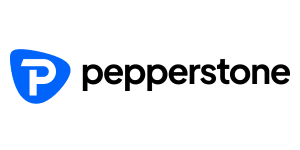
PFI Rating: 4.9/5
2. Pepperstone – Best CFD Broker For Forex
Pepperstone is our top pick for Forex CFDs.
Top-tier financial authorities like the ASIC, CySEC, FCA, SCB, DFSA, BaFin (Federal Financial Supervisory Authority), and CMA regulate Pepperstone.
They offer CFDs on Forex, Shares, Stock Indices, and Crypto CFDs.
Pepperstone is best for low forex fees because they have low or zero spreads and fast execution speeds.
Between 74-89 % of retail investor accounts lose money when trading CFDs.
Further, Pepperstone has competitive commissions and low spreads. They offer both MT4 and MT5, along with social and Algorithmic trading.
Key facts:
- Pepperstone offers approximately 26.53% more currency pairs than eToro, but 85% fewer Share CFDs.
- Plus500 offers 14.6% more currency pairs than Pepperstone (71+ pairs for Plus500 compared to 62+ pairs for Pepperstone).
- FxPro has 11.3% more currency pairs, with 69 pairs, while Plus500 offers 14.6% more currency pairs, with 71. On the other hand, Pepperstone has a significantly larger selection of currency pairs than eToro (26.5% more) and ThinkMarkets (34.8% more), which offer 49+ and 46+ currency pairs, respectively.
- Pepperstone has a smaller selection of cryptocurrency CFDs compared to eToro. eToro offers the most with 46+ pairs, offering 283.3% more crypto pairs than Pepperstone.
3. FP Markets – ECN Pricing CFD Broker
FP Markets was founded in 2005 and is great for its electronic communications network (ECN) pricing. It is regulated by ASIC and CySEC.
They offer CFDs on Forex, Metals, Shares, Commodities, Indices, Cryptocurrency, Bonds, and ETFs.
The minimum deposit is $100. FP Markets offers free withdrawals and deposits. They offer ten base currencies.
FP Markets is best for forex as they offer tight spreads and fast execution speeds. FP Markets excels in terms of its fee and pricing structure. They are one of the few CFD brokers who don’t charge inactivity fees.
Between 74-89 % of retail investor accounts lose money when trading CFDs.
4. AvaTrade – Best CFD Trading App
Avatrade is our pick as the best CFD trading app.
Avatrade was founded in 2006 and is one of the most regulated fixed-spread CFD brokers. Top-tier regulators like the FCA, ASIC, FSCA (Financial Sector Conduct Authority), FRSA, Israel Securities Authority, Financial Services Agency, and Financial Futures Association of Japan regulate Avatrade.
The AvaTrade minimum deposit is $100. Their CFD fees are low.
76% of retail investor accounts lose money when trading CFDs with this provider.
They offer CFDs on Forex, Stocks, Commodities, FX Options, Cryptocurrencies, Indices, ETFs, and Bonds.
The maximum leverage is set 1:400 on MT4 and MT5, giving access to the integrated Trading Central dashboard.
5. Interactive Brokers – Best Market Access CFD Broker
Interactive Brokers was founded in 1978 and is regulated top tier regulators worldwide. They offer the best CFD market access from this list.
They offer CFDs on Stocks, ETFs, Options, Futures, Currencies, Cryptocurrencies, US Spot Gold, Bonds, Mutual Funds, and Hedge Funds.
On Interactive Brokers' Official Website
They offer a mobile trading app, a desktop trading platform, and a web-based CFD trading platform. Traders can access advanced charting tools on Trader Workstation, live news streams, price quotes, and more.
There is no minimum deposit at Interactive Brokers. They offer one free withdrawal per month.
There are no inactivity fees. Interactive Brokers has one of the lowest and most competitive margin rates in the industry.
CFD trading fees are low. With IBKR CFDs, you get direct market access (DMA Brokers).
6. Plus500
Plus500 was founded in 2008 and is regulated by FCA, CySec, MAS, ASIC, FSA, and FMA. Plus500 is a leading global brand when it comes to CFDs.
They offer CFD trading instruments on Shares, Forex, Commodities, Indices, Crypto, Options, and ETF trading.
Plus500 minimum deposit is $100. They offer a demo account. CFD fees are low, and Plus500 charges an inactivity fee.
Their Mobile app is good but lacks customization for advanced users.
86% of retail investor accounts lose money when trading CFDs with this provider.
- Plus500 provides a remarkable 378.6% more Index CFDs than Pepperstone (67+ Index CFDs for Plus500 compared to 14+ Index CFDs for Pepperstone).
- Plus500 offers a significantly larger selection of Share CFDs, with 505.3% more options than Pepperstone (1816+ Share CFDs for Plus500 compared to 300+ Share CFDs for Pepperstone).
Compare CFD Brokers
Below we compare top-rated CFD brokers.
| Trading Platform | eToro | Pepperstone | FP Markets | AvaTrade | Interactive Brokers | Plus500 |
|---|---|---|---|---|---|---|
| Founded | 2007 | 2010 | 2005 | 2006 | 1978 | 2008 |
| Regulation | FCA, CySEC, ASIC, FSAS | ASIC, CySEC, FCA, SCB, DFSA, BaFin, CMA | ASIC, CySEC | FCA, ASIC, FSCA, FRSA, Israel Securities Authority, Financial Services Agency, Financial Futures Association of Japan | SEC, CFTC, FCA, NFA | FCA, CySec, MAS, ASIC, FSA, FMA |
| Offering Of Investments | Stocks, ETFs, Forex, Crypto, Indices, Commodities | CFDs on Forex, Crypto, Shares, Indices, Crypto | Forex, Shares, Metals, Commodities, Indices, Cryptocurrency, Bonds, ETFs | Forex, Stocks, Commodities, FXOptions, Cryptocurrencies, Indices, ETFs, Bonds | Stocks, ETFs, Options, Futures, Currencies, Cryptocurrencies, US Spot Gold, Bonds, Mutual Funds, Hedge Funds | Shares, Forex, Commodities, Indices, Crypto, Options, ETFs |
| Minimum Deposit | $50 - $100 | $0 | $100 | $100 | $0 | $100 |
| Demo Account | Yes | Yes | Yes | Yes | Yes | Yes |
| Withdrawal Fee | $5 | $5 | $0 | $0 | 1 Free Withdrawal per Month | $0 |
| Inactivity Fee | $10/month | $0 | $0 | $50/month After 3 Months | No | Yes |
| Deposit Methods | PayPal, Skrill, Neteller, Credit Card, Debit Card, Rapid Transfer,iDEAL, Klarna / Sofort Banking, Bank Transfer, Online Banking - Trustly, POLi | Credit/debit cards, Bank/Wire Transfer, PayPal, Neteller, Skrill, UnionPay | Credit Cards. Debit Cards, Bank Transfer, Ngan Luong, FasaPay, Online Pay, Broker to Broker, Neteller, Skrill, PayTrust, PayPal, Bpay, Poli | Credit and Debit Cards, Wire Transfer, e-payments | Bank Wire, Credit Cards, ACH, Mail a check, Rollover, Online Bill Pay, Trustee-to-Trustee, SEP Contribution | PayPal, Skrill, Credit Card, Debit Card, Bank Transfer |
Compare CFD Fees
While it is hard to compare the fees of CFD brokers, we made the table below to help you. In addition to the regular trading fees, you should be aware of other non-trading costs.
| Trading Fee | eToro | Pepperstone | FP Markets | AvaTrade | Interactive Brokers | Plus500 |
|---|---|---|---|---|---|---|
| EURUSD | Varied Spread | Minimum from 0.0 and 0.17 average spread (Razor Account) Minimum from 0.6 and 0.77 average spread (Standard Account) | from 0.0 - 1.3 (average 0.2 pips) | Spread: 0.9 | Spreads | Spread: 0.01% |
| GBPUSD | Varied Spread | Minimum from 0.0 and 0.59 average spread (Razor Account) Minimum from 0.6 and 1.19 average spread (Standard Account) | from 0.0 - 1.8 (average 0.7 pips) | Spread: 1.5 | Spreads | Spread: 0.02% |
| Apple Fees | $0 | 0 + market spread | Spread | 0.13% | $0 commissions | Spread: 0.74% |
| Tesla Fees | $0 | 0 + market spread | Spread | 0.13% | $0 commissions | Spread: 0.75% |
| Amazon Fees | $0 | 0 + market spread | Spread | 0.13% | $0 commissions | Spread: 0.75% |
| S&P 500 Fees | Varied Spread | min. 0.4 spread | Spread | 0.25 over market | N/A | Spread: 0.02% |
| Options Fee | N/A | N/A | N/A | N/A | N/A | Spread |
| Mutal Fund Fees | N/A | N/A | N/A | N/A | N/A | N/A |
| ETF Fee | $0 | N/A | N/A | 0.13% - 0.15% | $0 commissions | Spread |
What is CFD Trading?
CFDs were first traded on the London Stock Exchange in the early 1990s. CFDs were originally utilized by hedge funds and asset managers. The rise of retail CFD accounts has brought access to CFDs to retail traders.
CFDs are traded based on the performance of an underlying instrument. An agreement between a trader and their CFD broker concludes after a predetermined length of time. CFDs are speculative. Traders try to predict whether a CFD instrument price changes up or down.
Regulation surrounding CFDs has been slow to adapt to the growing markets. Some regions, such as the US, Brazil, and Hong Kong, have banned CFD outright.
Margin
CFD margin trading is the initial capital traders need in opening a CFD position. Depending on the leverage ratio, marginal capital is increased proportionally to secure a larger market exposure than the initial amount would have allowed. Some CFD brokers will enable a margin of 2% so that you can borrow up to 98% of the position's value. This gives you more buying power than most other traditional trading options.
If a trader speculated the movement of the CFD incorrectly, they might lose more than the marginal investment.
Leverage
CFDs are leveraged products. The leverage that a trader has access to shows the amount that a broker will increase the initial investment size. This allows traders to take larger positions than they otherwise could.
Leveraged trading is the ratio of the increased volume against the initial investment, for example, 100:1. In other words, an initial investment of $100 can be increased to a position at $10,000.
Local regulations set maximum leverage ratios. Some regions, like the EU, are more strict and limit leverage ratios to 30:1.
Benefits and Drawbacks of CFDs
CFDs are a complicated and volatile market. We’ve compiled a brief list of the pros and cons of CFDs.
If you’re looking for more information, skip to the end of this article, where we’ve compiled an FAQ and other important information on the subject.
Pros
- Leverage
- It’s possible to go long or short.
- Commission on CFD assets tends to be lower than on traditional investments.
Cons
- CFD Brokers charge overnight fees for any contracts held over a trading day.
- Using leverage for CFD increases the potential loss traders may face.
- Traders do not own the underlying instrument.
How to Pick a CFD Broker?
Regulation
Depending on which country it operates in, it will be subject to different types of regulation. Traders must understand the ins and outs of these regulations.
Different regulatory zones may have rules determining maximum leverage amounts.
Regulations will also determine what you’re allowed to trade and whether your funds are kept in segregated accounts.
Fees & Commissions
There are many ways that CFD brokers charge their clients to earn money. CFD Brokers charge commissions, swap rates, currency conversion fees, spreads, withdrawal charges, and inactivity fees.
Some CFD brokers, like eToro, don’t charge traders much in commission. Instead, they take a cut of each trade when a position is opened or closed. Others make money by charging monthly subscription fees.
Traders who leave their accounts for months without activity may be charged inactivity fees. They use these fees to encourage users to remain active.
Platforms like FP Markets that don’t charge any inactivity fees are rare.
Securities Available
Depending on the CFD trading platform, you can access a different range of CFD Products. Because trading is done based on the performance of the underlying security or instrument, the more traders have access to, the more versatile you can be in your strategy.
CFD Brokers like IQ Option and eToro have a wide range of securities to trade.
Account Types
Most retail CFD brokers offer different account types to their traders. These accounts differ in terms of their spreads and commissions. With some, higher tiers of accounts have access to more innovative trading tools.
When picking a trading platform, find one that has a demo account. This list only includes the ones that give access to demo accounts. For most casual traders, standard accounts will suffice their needs. These accounts are typically limited to any account opened with less than a $100,000 deposit, but it changes depending on the platform.
Trading Platforms Available
Many use third-party trading platforms to execute trades. MetaTrader 4 and 5 (MT4/MT5) are the most popular platforms.
Your trading platform will change the instruments you can trade on. Your choice of platform will also affect how much you are charged for each trade.
Some, such as IG and Markets.com, have proprietary trading platforms. This means they have set up their platform through which all trades are executed. A broker that uses its platform tends to have lower slippage and a higher degree of accuracy. Smaller platforms may have access to fewer security options.
Customer Support
You should always look for a CFD broker that provides great customer support. Because CFDs markets are volatile, you never know when you will need quick and competent support.
Look for brokers offering email, live chat, phone, WhatsApp, and Telegram support. A bonus is 24/7 support.
AvaTrade won numerous awards for excelling in customer care.
CFD vs Investing
CFDs and investing are two different techniques traders use to speculate on the performance of a particular market.
The main difference between CFD and investing is that with CFDs, at no point does the trader own the speculated security. CFDs are simply contracts that speculate on whether security will trend upwards or downwards over a pre-determined length of time.
Investors own, either in part or in whole, the stock, currency, or commodity they are investing in. This also means that investors can only make money when their investment gains value.
With CFD trading, it is also possible to go short.
CFD vs Spread Betting
CFD trading and Spread Betting are similar in many ways. They are both speculative and based on the performance of an underlying instrument. They are also both frequently traded using leverage and margins.
Spread Betting is often done through third-party over-the-counter (OTC) brokerages. The retail brokers on this list do not provide any form of spread betting. Because of their OTC nature, it is possible to place spread bets on company stocks that are not publicly listed.
One of the most significant differences between Spread Betting and CFD is that Spread Betting is not seen as an income and therefore is not subject to capital gains taxes. Spread Bets are also not charged fees and commissions.
Spread Betting is viewed more as a form of gambling. Because of this, it is not suitable for Muslim traders.
Countries where you can trade CFDs
Most countries allow CFDs, but there are exceptions.
CFD trading is illegal in the USA, Brazil, Belgium, and Hong Kong.
Residents in these countries can still trade CFDs, but they must use regulated CFD brokers outside their region. This carries significant risks since these tend to have lower levels of security and trust.
Risks of CFD Trading
CFDs carry their share of risks. Many have risk management tools such as stop-losses and alerts. Traders are encouraged to use these tools to protect themselves against major financial losses.
As a rule of thumb, never put in more than you are willing to lose. Make sure to size your positions with a small percentage of the trading capital.
Leverage has its benefits, but there are also significant drawbacks. The recent Gamestop-Reddit saga is an excellent case study of the potential harm of trading with leverage.
Brokers leverage a trader’s initial margin to secure a larger position.
Traders should be aware that across various platforms, more than two-thirds of traders lose money when trading CFDs.
Types of CFD brokers
CFD brokers fall into two categories: Dealing Desk (DD) and No Dealing Desk (NDD).
DD are also known as market makers. In a CFD trade, a DD broker takes the other side of a trader’s position.
DD earns its profits when the trader makes a loss, and vice-versa. Many traders see this as a potential conflict of interest. In the past, brokers have been caught actively working against their client’s trades.
DD are advantageous in that they offer fixed spreads.
NDD brokers utilize straight-through processing (STP) to link a trader’s CFD bid to a third-party liquidity provider. Because of this, NDDs are not involved in the trade; they only facilitate it.
Many traders feel more comfortable with NDD since they are not a party in the trade. They have no interest in whether the trader wins or loses.
How do CFD Brokers make money?
CFD Brokers make money in two ways.
Firstly, they charge a commission for trades. They will take a percentage of every trade's opening and closing positions. Although this percentage is small (less than 1%), the volume of trades the broker executes daily makes up for it.
A DD broker will make money off of their clients’ losing trades. Because DD brokers take the opposite position of their clients’ CFD, they have to pay out whenever a client wins. When a client loses, they pay their losses to the broker.
FAQ
Why are CFDs banned in the US?
The Securities and Exchange Commission (SEC) ruled against OTC stock options owing to their volatility. According to the SEC, the high-risk nature of leveraged CFD trading and the fact that most traders lose money on trades. The CFTC regulates the spot forex cash market, so U.S. clients have to trade with a U.S.-regulated forex broker.
Is CFD Trading Tax-Free?
Unlike spread betting, which is considered a form of gambling, CFD trading is seen as income. Countries have various laws for CFD profits, so you should consult your local tax advisor.
Is CFD Trading Gambling?
CFD trading isn’t considered gambling. Traders with a keen eye on the market can accurately predict the movement of the underlying security. Although it’s not considered gambling, potential traders should know that CFDs are speculative. Even the most obvious predictions can go awry.
Are CFDs safe?
CFDs are considered highly volatile. Traders should be aware that the majority of CFD traders lose money. It is not considered safe.
